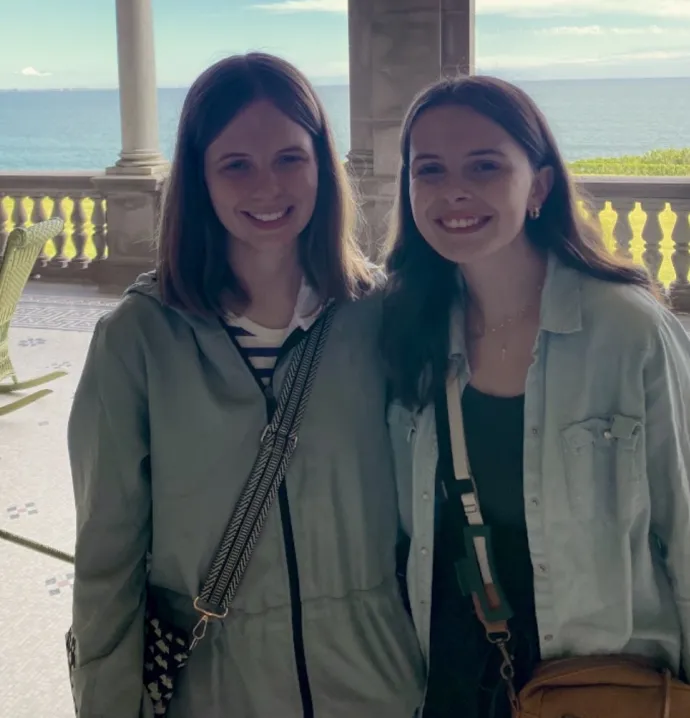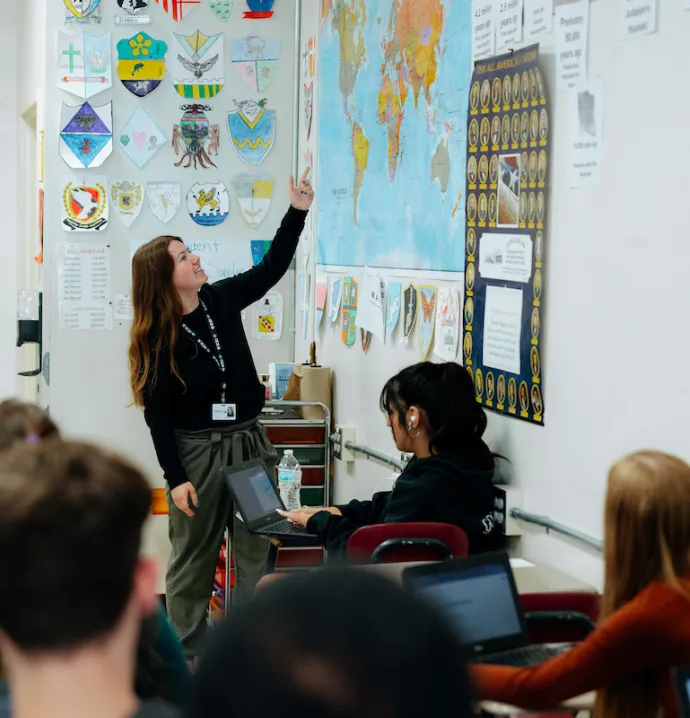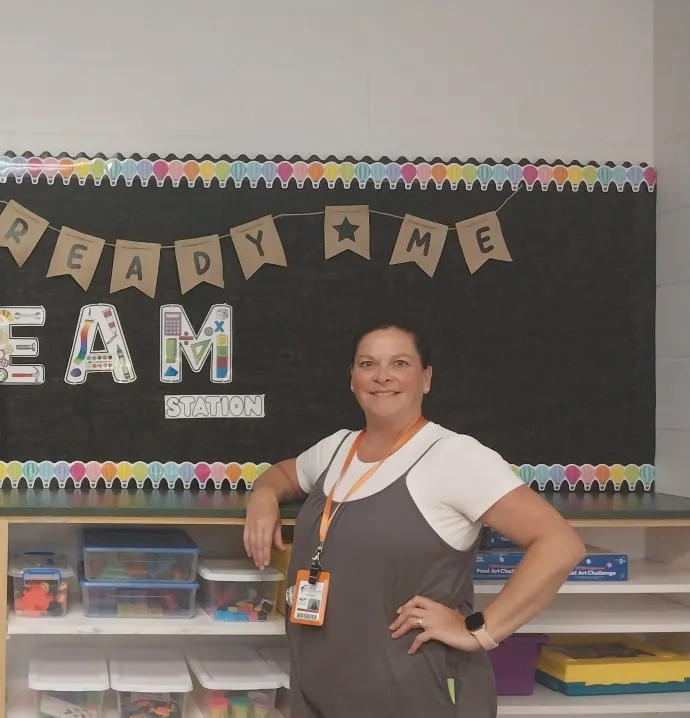UNI alumna leaves lasting legacy on national opera scene
UNI alumna leaves lasting legacy on national opera scene
Her story almost sounds like a made-for-TV movie — a young girl from small-town Iowa is hand-picked by an instructor from the famed Juilliard School of Music to pursue a career in New York City under her guidance. It might sound too good to be true, but that’s actually what happened to UNI alumna Sheri Greenawald ‘68.
She’s since traveled the world as an opera singer, gained a reputation as a master vocal instructor and built a national legacy as director of the San Francisco Opera Center. She’s now getting ready to retire at the end of 2020 after 18 years as director of the Opera Center and a professional singing career that spanned decades.
“San Francisco Opera has been blessed to have Sheri’s artistic leadership of the Opera Center for almost two decades,” said San Francisco Opera general director Matthew Shilvock in an email. “Sheri’s legacy, not only in this company but in this art-form is staggering, and will be seen in the beauty of our art for many, many years to come.”
The most unbelievable part? Greenawald never even planned to go into music. She enjoyed singing growing up, but wanted to become a doctor. but the summer before her senior year of high school, her band instructor encouraged her to come to a music camp at UNI. That’s when everything changed.
It was one UNI professor in particular — the late Charles Matheson — who made all the difference. Matheson had every student who studied with him during the music camp sing a hymn to showcase their voice.
“Halfway through singing the hymn, he stopped me, looked up and said, ‘What are you planning to do with the rest of your life?’ He obviously heard a very special talent,” Greenawald recalled in a phone interview. “At the end of the week at camp when my parents came to get me, Charles made a point of meeting with them and explaining what needed to happen for me. That changed the course of my life.”
Finding her path
During her senior year at Monticello High School, Greenawald would regularly travel to Cedar Falls for vocal lessons with Matheson, before coming to UNI to pursue a BA in music in 1965. It’s at UNI that she met Virginia Hutchings, the instructor visiting from Julliard who encouraged Greenawald to pursue music professionally. That’s the moment she first realized for herself how special her talent was.
“I never thought about it much, I just went along and did what I was supposed to do, but I didn’t take it all that seriously for a long time,” Greenawald said of her studies in music. “But then Virginia Hutchings convinced my parents that she would take me to New York and introduce me to people. Lo and behold, that’s what we did.”
Though Greenawald had the talent, she wasn't an overnight success. She’d spend her early years in New York working the odd 9-to-5 while taking private lessons with esteemed vocal instructors in the evenings. “None of my teachers wanted me to study at a school,” said Greenawald. ”They said the schools weren’t going to serve me very well.”
Some of her jobs even turned out to be as enviable as her music pursuits — including a role at the legendary publishing house Charles Scribner's Sons and a stint as advertising manager for Philip Morris. Greenawald found herself succeeding in a variety of roles, even as she pursued her music in her free time.
“Even when I was working in just menial jobs, everyone noticed that I did it better than everybody else. So then I’d gain a promotion or I get a little pop up or get to do something more interesting,” she said. “If you’re smart and you just pay attention, you can make your way almost anywhere.”
But Greenwald was starting to find that her heart really was in music — and she was starting to find success, too. She started making connections — including brothers David and Christopher Alden, famous opera directors, and Matthew Epstein, the man who would become her manager. Before she knew it, she was booking projects and winning rave reviews.
In a 1989 review, The New York Times praised her “bright, wide-ranging soprano” as a highlight of her performances, and called her “a real singing actress.” One review in particular, from the now-defunct but still-revered “Cue” magazine, helped her realize she had finally made it.
“I got a review that said I was a combination of three Marias — Maria Callas, Maria Montez and Maria Ouspenskaya,” Greenawald remembered. “Then I started to think ok maybe this is actually gonna work. Maybe I'm actually going to be able to make my living.”
While few musicians anywhere rise to the heights Greenawald attained, graduates of the UNI School of Music have a long history of success as professional musicians and teachers and can be found working and performing all over the world, the school’s director Jeffrey Funderburk said.
“Thanks to the support and encouragement of an outstanding faculty and the work ethic of our student body, graduates of the UNI School of Music continue to have a significant influence on the world of professional music,” he said.
Building a legacy
More than making a living, Greenawald would go on to build a legacy. The years following her first star-making turn would include a decade-plus of performances across the globe, two years as an instructor at the Boston Conservatory, and countless accolades, including Seattle Opera’s Artist of the Year. Then, in 2002, she got an offer that would once again change her life — she was hired as the director of the San Francisco Opera Center.
The job represented a new phase in Greenawald’s career — now, she was the one picking out the best and brightest students for star-making stage debuts; she was the one training singers to make the most of their voices.
“There is an extraordinary nuance required to the training of opera singers at the start of their professional career, and Sheri creates a space of care, compassion and rigor in which artists can explore all the dimensions of their craft,” said Shilvock. “She has discovered and nurtured over five hundred artists, who are now working in major opera houses all over the world.”
Her expertise has taken her students to revered stages like the Metropolitan Opera. After 18 years with the Opera Center, her impact on those students is what she values the most.
“I've been able to help a lot of young singers start their path and that makes me happy,” she said. “I get to be an influence in their lives and help them see the light. Having taken so long for my own commitment to be made, I can advise them on how and when to make that commitment. After all I’ve been through, it’s wonderful to be able to pass on my knowledge to a new group of singers.
Part of that knowledge is the importance of practice, a lesson she first learned at UNI. In addition to her rigorous training with Matheson, as a UNI student, Greenawald had to spend countless hours practicing on her own time in the training rooms on the lower level of Russell Hall.
“Being down in ‘the dungeon’ — that’s where I learned to sing,” recalled Greenawald. “I put in hours. I took myself down into those practice rooms and I turned on the metronome and I taught myself how to sing. I still tell people that’s the only way to do it. Just go into a little practice room and put on a metronome and do it.”
This experience — and the rest of her UNI education — have served her well throughout the years.
“I feel, honest to god, my schooling in Iowa and the skill sets I learned is what took me through my career so easily,” she said. “I had a really good musical education at UNI and that was so important for me going forward. I knew how to study, I knew how to sit down at the piano and do my work. And then I was lucky to have those people like Charles Matheson.”
Greenawald said luck is another big part of her success — as well as the naive confidence that defined her early career — but it’s nothing without the hard work she learned to value while at UNI.
“I’ve always had a strange confidence in myself. It does take a tremendous amount of stupidity, which I think was my case, or courage,” Greenawald said with a laugh. “It really is about finding confidence in yourself, but that, of course, comes through doing the work. There’s no special thing. You have to learn the music and do the work, and then it’s just about being confident.”
Photos courtesy of the San Francisco Opera.




